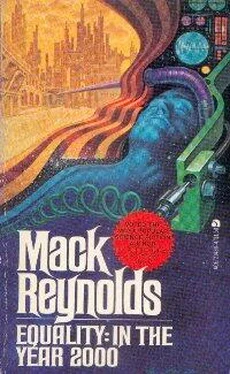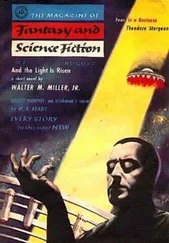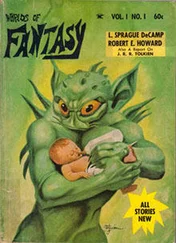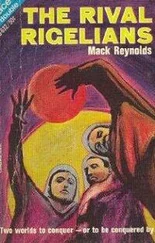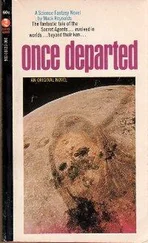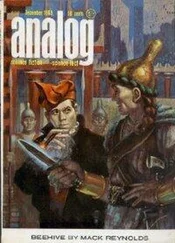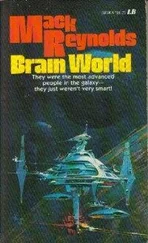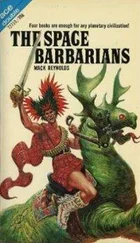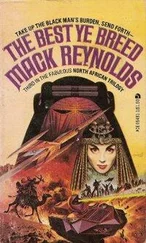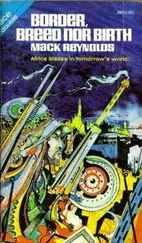Mack Reynolds - Equality - In the Year 2000
Здесь есть возможность читать онлайн «Mack Reynolds - Equality - In the Year 2000» весь текст электронной книги совершенно бесплатно (целиком полную версию без сокращений). В некоторых случаях можно слушать аудио, скачать через торрент в формате fb2 и присутствует краткое содержание. Год выпуска: 1977, ISBN: 1977, Издательство: Ace Books, Жанр: Фантастика и фэнтези, на английском языке. Описание произведения, (предисловие) а так же отзывы посетителей доступны на портале библиотеки ЛибКат.
- Название:Equality: In the Year 2000
- Автор:
- Издательство:Ace Books
- Жанр:
- Год:1977
- ISBN:0-441-21430-4
- Рейтинг книги:3 / 5. Голосов: 1
-
Избранное:Добавить в избранное
- Отзывы:
-
Ваша оценка:
- 60
- 1
- 2
- 3
- 4
- 5
Equality: In the Year 2000: краткое содержание, описание и аннотация
Предлагаем к чтению аннотацию, описание, краткое содержание или предисловие (зависит от того, что написал сам автор книги «Equality: In the Year 2000»). Если вы не нашли необходимую информацию о книге — напишите в комментариях, мы постараемся отыскать её.
Equality: In the Year 2000 — читать онлайн бесплатно полную книгу (весь текст) целиком
Ниже представлен текст книги, разбитый по страницам. Система сохранения места последней прочитанной страницы, позволяет с удобством читать онлайн бесплатно книгу «Equality: In the Year 2000», без необходимости каждый раз заново искать на чём Вы остановились. Поставьте закладку, и сможете в любой момент перейти на страницу, на которой закончили чтение.
Интервал:
Закладка:
Sir Edward grimaced. “Could use a spot of gin. Bloody beggars have prohibition now. Damned nuisance.”
Julian said carefully, almost apologetically, “If you don’t like it here, sir, why do you remain?”
Sir Edward grunted his equivalent of a laugh. “No use mucking around with the answer to that, dear boy. This is where the action is, as you Yankees say. When the Indians gained their bloody independence, His Majesty’s governmental officials returned to England, don’t you know? But we British businessmen didn’t. We stayed on. In fact, there are more English in India today than during the days of the Raj.”
He looked at his watch. “But, I say, suppose we mosey along and see a bit of the town? Bit interesting for you, I wouldn’t wonder. First trip to India and all that rot.”
They left the hotel and started up Colaba Road. Even in this Europeanized area, Julian couldn’t help but note the teeming multitudes of Indians. He had never seen such diversity of colorful costume.
“Bloody mess of the bounders, eh?” the Englishman said. “Pushing half a billion in all. More than four million in Bombay alone, I shouldn’t wonder. Jolly well too many of them. I’d jolly well like to go through the countryside and sterilize every other male, don’t you know?”
Julian said, “I don’t think I’ve ever seen anything so crowded except Times Square on New Year’s Eve.”
They had turned up Mahatma Gandhi Road.
“Son of a bitch, as you Yankees say,” Sir Edward commented about Gandhi. “Caused us ever so much trouble, but I suppose you can’t hold it against a chap for trying to get his own way, now can you?”
“I suppose not,” Julian said. “They certainly do have a great many different styles of clothes, don’t they?”
The Englishman turned guide. “Way you can tell the bloody bounders apart,” he said. “’See that one over there? The better dressed one? That’s a Brahman.” He sneered. “The nigger equivalent of an aristocrat. They wear a sacred thread over one shoulder and have a mark of one of the Hindu gods chalked on their forehead, rising from the bridge of the nose like two thin white horns. That’s one of the marks of Vishnu, the Preserver. Ridiculous, isn’t it?”
“What kind is that one?”
“Moslem. You can usually tell them from a Hindu because they wear a black fur cap. She’s a Moslem too. They wear that enveloping chadar or burqa . Looks like an animated tent, don’t you think?”
Most of the women, other than the occasional European, wore what Julian knew was called a sari, but there were a double score of styles.
“That’s a Bengali,” Sir Edward said. “He’s wearing what they call the dhoti . All-purpose white garment. Sometimes it hangs almost to the ground like a sarong, or sometimes they tuck it up like that chap, like a loincloth. Sometimes the bounders wear a waistcoat with it, sometimes a shirt with the tails flopping outside. Silly-looking bunch of monkeys, don’t you think?”
A girl whom Julian would have thought no more than ten years of age came alongside and clawed at his arm. In spite of her age, she was carrying a baby. She was grubby, barefoot, and wore a single dirty rag.
She whined, “No mama, no papa. Hungry, hungry, hungry. Money, money, money.”
Julian stared at her, even as they continued to walk.
“Ignore the bloody little bitch,” Sir Edward commanded.
“But she looks like she’s half starving,” Julian said.
“Jolly well be better if she did, you know. Professional. Whole caste of them here in India. Parents were beggars, grandparents, all the way back to the days of Alexander the Great or whoever, don’t you know? See that baby? She probably rented it this morning.”
The child was still tagging along with her burden. “No mama, no papa…” Julian was embarrassed, and looked out of the side of his eyes to see how the passersby were taking the scene.
“Rented it?” he said.
“Why, yes. And sometimes beggar parents take their children and maim them. Twist their legs or arms around, blind them, or whatever, to gain sympathy. Bloody heathens.”
Julian felt slightly nauseated at the idea. He had changed a twenty-dollar traveler’s check at the hotel, and now had a pocketful of rupees and naye paise. He had gotten nearly five rupees to the dollar, to the Englishman’s disgust, and had been informed that on the black market, which Sir Edward offered to direct him to, he could have gotten half again as much. Julian had told him that it wasn’t important.
But, at any rate, he was now in a position to give the ten-year-old a coin or so.
Sir Edward snickered. “You think she is starving? Look at that gold ring in her ear. She’s a professional beggar, specializing in we whites. Some of the other beggars specialize in pilgrims and hang around the temples. Supposedly, the pilgrims gain merit in the eyes of the gods by giving to them. And they usually give one naye paise, about one twentieth of one of your Yankee cents.”
The child beggar followed them at least three or four blocks. In spite of his embarrassment, Julian continued to ignore her. After she dropped away, back into the teeming mob of pedestrians, another beggar, an unbelievably old man, took up the pursuit, whining in some language Julian had never heard before.
The Englishman snorted cynically. “That’s the end of her beat, dear boy. If she continued to follow us, the others would give her a bit of a show at the end of the day. Do you know what would happen if you gave this bloody nigger something?”
Julian said, “Well, no, but he seems to be very old.”
“He’d pass the information along, don’t you know, to his, ah, colleagues. Within ten minutes, you’d have half a dozen of the blighters trailing you.”
Before them reared an enormous Indian building, as large as a cathedral. It must have cost millions, Julian decided, but somehow, for him, it lacked beauty in a country so rich in beggars.
“Mumbadevi Temple,” his guide said. “The town’s jolly well overrun with temples. Hindu temples, Moslem temples, Zoroastrian, Buddhist, Jain-ian… I dare say there are hundreds in all. The Zoroastrians have an interesting bit. They don’t believe in either burial or cremation. Up in the Hanging Gardens they have several of what they call Towers of Silence. When one of them dies, his body is put on the top of one of the towers and buzzards come and eat the corpse. After a week or so of exposure, the bones are taken down and thrown into the tower’s well. Bloody gruesome, eh? You can watch the buzzards at work from a nearby hill.”
Julian’s nausea was not diminishing. “I… I don’t think I’d like that.”
He looked at the ornate, towering temple.
A cadaverously thin, barefooted, ragged man who seemingly was about to enter the temple gate suddenly staggered, his eyes popping in horror. Blood gushed from his mouth, spewing out onto the sidewalk. He staggered again, fell forward onto his face.
Julian automatically started forward.
Sir Edward quickly took his arm. “He’s beyond help, dear boy. Probably dead by now. The meat wagon will undoubtedly be along shortly. Besides, how would you like to catch whatever he had?”
The other pedestrians walked around the fallen man, ignoring him.
“Meat wagon?” Julian repeated, unable to keep his eyes from the body. He had never seen a person die before. It was all he could do to keep from vomiting.
Sir Edward hurried him on. “Every night, several hundred of the street people die. City trucks come around and pick up the bodies, don’t you know?” He added musingly, “Fewer seem to die during the day hours, but you see the corpses around from time to time.”
“Street people?”
Читать дальшеИнтервал:
Закладка:
Похожие книги на «Equality: In the Year 2000»
Представляем Вашему вниманию похожие книги на «Equality: In the Year 2000» списком для выбора. Мы отобрали схожую по названию и смыслу литературу в надежде предоставить читателям больше вариантов отыскать новые, интересные, ещё непрочитанные произведения.
Обсуждение, отзывы о книге «Equality: In the Year 2000» и просто собственные мнения читателей. Оставьте ваши комментарии, напишите, что Вы думаете о произведении, его смысле или главных героях. Укажите что конкретно понравилось, а что нет, и почему Вы так считаете.
